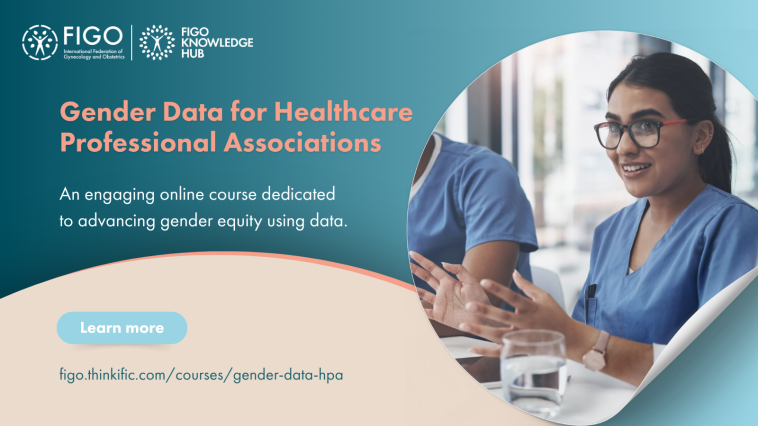FIGO launches its first capacity strengthening online course: Gender Data for Healthcare Professional Associations

As part of its evolving education offering, FIGO is delighted to launch its first capacity strengthening online course: Gender Data for Healthcare Professional Associations.
Developed through the FIGO LDI:REACH programme, the course has been specifically designed for FIGO members and focuses on utilising gender-disaggregated data to identify and address gender inequities within member societies, leading to improved outcomes for both clinicians and patients.
Course participants will learn how to:
- Recognise how gender equity can improve health outcomes, enhance the experience of healthcare professionals and advance the work of healthcare professional associations
- Understand the role of data management, disaggregation and analysis in identifying gender inequities
- Be equipped to promote gender equity within healthcare professional associations, healthcare facilities and the health system, based on data
The course covers key topics such as sex, gender and gender identity, intersectionality, gender disaggregation, managing records, interpreting data, leadership trends, leadership opportunities and nurturing a conducive environment for gender equity.
Designed to build knowledge and provide foundational information for those with and without pre-existing knowledge, the course links good data management practices with gender equity opportunities through case studies, evidence-based examples, reflective exercises, interactive quizzes and more.
Join us as we explore how professional associations can contribute to improved clinician and patient outcomes in their countries with robust, data-driven and evidence-based processes and practices built on an equitable approach to gender.
Get started and enrol for free here on the FIGO Knowledge Hub.
This online course is based on research funded by (or in part by) the Gates Foundation. The findings and conclusions contained within are those of the authors and do not necessarily reflect positions or policies of the Gates Foundation.